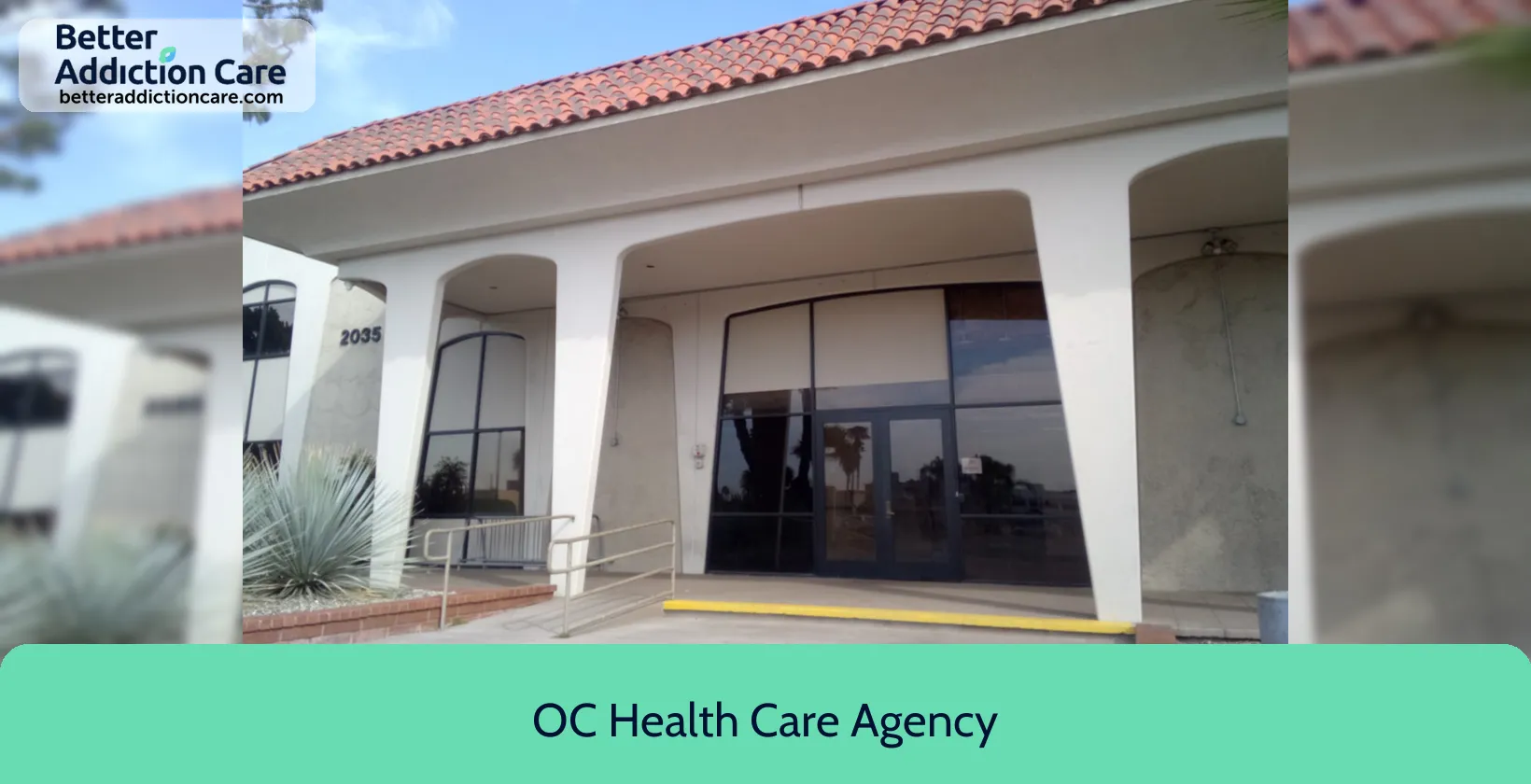OC Health Care Agency

Overview
OC Health Care Agency is an substance abuse treatment center that provides outpatient detoxification, for men and women from 18+ years of age. As part of their special programs, OC Health Care Agency treats clients with hiv or aids and clients who have experienced trauma. To help patients achieve sobriety, OC Health Care Agency provides intake assessments. Afterward, patients receive group counseling, individual psychotherapy, and family counseling during treatment. OC Health Care Agency is located in Westminster, California, providing treatment for people in Orange County, accepting cash or self-payment, sliding fee scale (fee is based on income and other factors), and state-financed health insurance plan other than medicaid.
OC Health Care Agency at a Glance
Payment Options
- Cash or self-payment
- Sliding fee scale (fee is based on income and other factors)
- State-financed health insurance plan other than Medicaid
- Medicaid
- Medicare
Assessments
- Comprehensive mental health assessment
- Comprehensive substance use assessment
Age Groups
- Adults
- Children/adolescents
- Young adults
Operation
- State government
Highlights About OC Health Care Agency
6.93/10
With an overall rating of 6.93/10, this facility has following balanced range of services. Alcohol Rehabilitation: 8.00/10, Drug Rehab and Detox: 6.62/10, Insurance and Payments: 6.00/10, Treatment Options: 7.09/10.-
Alcohol Rehabilitation 8.00
-
Treatment Options 7.09
-
Drug Rehab and Detox 6.62
-
Insurance and Payments 6.00
Treatment At OC Health Care Agency
Treatment Conditions
- Mental health treatment
- Alcoholism
- Opioid Addiction
- Substance use treatment
- Co-occurring Disorders
Care Levels
- Detoxification
- Aftercare
- Outpatient
Treatment Modalities
- Group counseling
- Individual psychotherapy
- Family counseling
- Marital/couples counseling
- Life Skills
Ancillary Services
Languages
- Sign language services for the deaf and hard of hearing
- Spanish
Special Programs
- Clients with HIV or AIDS
- Clients who have experienced trauma

Additional Locations
Contact Information
Read our Most Recent Article About Drug Addiction
DISCLAIMER: The facility name, logo and brand are the property and registered trademarks of OC Health Care Agency, and are being used for identification and informational purposes only. Use of these names, logos and brands shall not imply endorsement. BetterAddictionCare.com is not affiliated with or sponsored by OC Health Care Agency.









